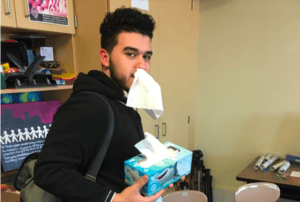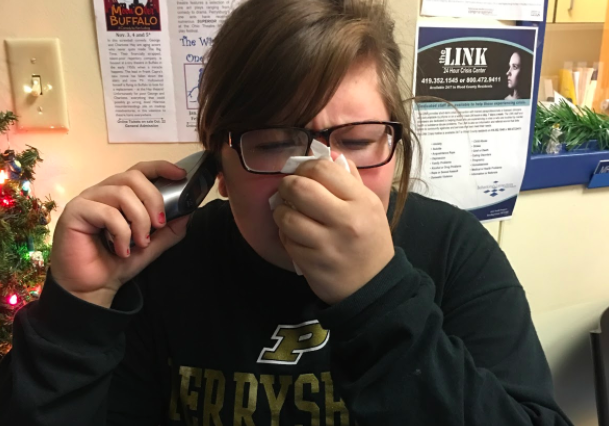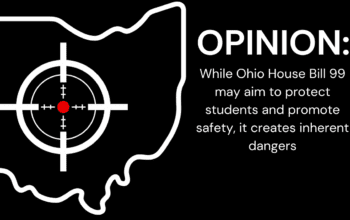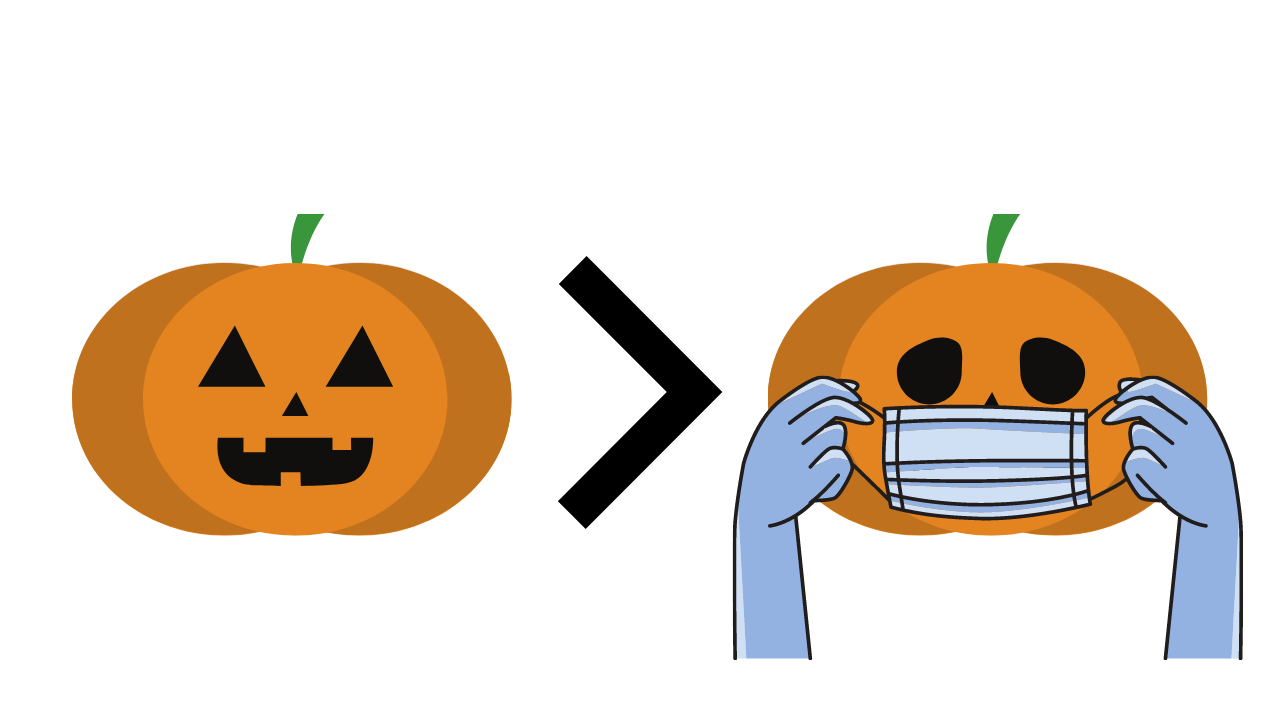Avery Cook
eSomethin Staff
Perrysburg students know all too well about coming to school while sick to get one simple thing – an exam opt out. The high school has a policy stating if a student misses a maximum of two days with excused absences, that student qualifies to opt-out of one class exam, if the student has a C+ or higher in that class and no office detentions. This rule pertains to two classes per semester.
 Students love this privilege. It can save grades and reduce the stress of exam week for many. With first semester exams coming up in a few weeks, students push to raise their grades and to continue coming to school consistently until the arrival of exam week.
Students love this privilege. It can save grades and reduce the stress of exam week for many. With first semester exams coming up in a few weeks, students push to raise their grades and to continue coming to school consistently until the arrival of exam week.
However, there is a frequent pattern that students come to school while having an illness in order to opt out. Sophomore, Caitlin Kleinfelter speaks about coming in sick as a student.
Kleinfelter says, “I almost always come to school when I’m sick because I don’t want to lose my opt-out, unless I’m to the point that I can’t even get out of bed. I recently got a concussion from sports but I still went to school after staying home a couple of days. I felt dizzy in class and couldn’t focus anyways so it’s like I’m there for the opt-out but my mind isn’t there to learn.”
Sophomore Owen Donbrosky has similar problems, “[Coming in sick] definitely made school harder because I wasn’t concentrating on my academics. I was concentrating on deciding if I should skip the day and lose my opt out or just tough it through.”
Coming to school under-the-weather can cause a wider spread of sicknesses throughout the school as it can pass from student to student in a matter of seconds. It doesn’t help that we are entering the winter season, where contagions are at a higher risk of being caught.
The PHS Nurse Debbie Reddick is very concerned about this issue.
When asked if students coming in sick was a common problem in the school, Reddick says, “It is at times. You have the student that comes in, clearly they’re not feeling well and should go home, but they don’t want to because it will ruin their opt out. Sometimes they do seem to be a bit stressed because they know that they have two chances [for opting out] but they don’t want to ruin one of them in case they have something happen down the road.” Reddick acknowledges the students who care strongly about getting their opt out privilege, as well as the students who work hard and make sacrifices in order to obtain it.
As a mother, she adds, “…I know that I struggled with some of my kids sometimes coming in when they shouldn’t have because they wanted to opt out…”
Reddick also points out how upset students can get when they have a temperature and need to leave school and how that affects your opportunity to opt out.
A solution could be that absences are counted by missed class time.
If you need to leave for an appointment or personal issue in your lunch or study hall period, it should not count against you if you return within that period. That gives you roughly fifty minutes to leave school for your purpose. In doing this, some students would still be able to opt out if they abide to the absences rule. It would also continue to reduce exam week stress on students and let them take care of their personal needs without being punished for it.
Do you have suggestions for how to adjust the opt-out policy? Let us know in the request for coverage page!
Other stories on eSomethin:
[posts template=”templates/list-loop.php” posts_per_page=”6″ tax_term=”976″ order=”desc” orderby=”modified”]





